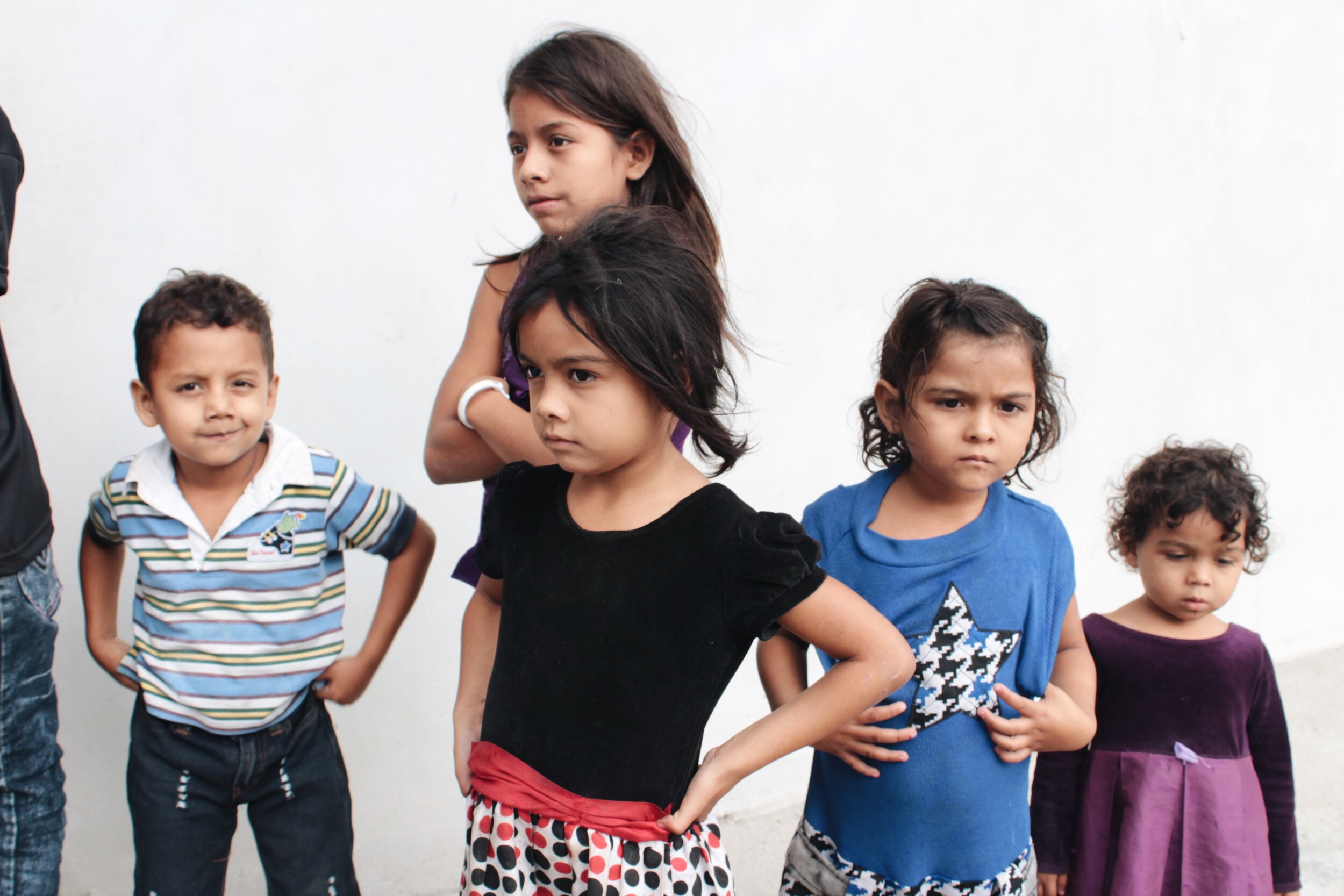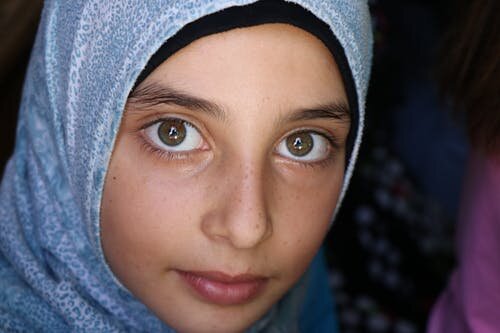Child sexual abuse and Culturally and Linguistically Diverse (CALD) communities
A Continuing Professional Development (CPD) program for service providers to help break the silence
Have you wondered why so few CALD victims/survivors access your services?
No one really talks about child sexual abuse in CALD communities, so maybe you’re thinking you should stay silent too? When you take the first courageous step to learn more, you will build confidence in your knowledge, which then makes you better placed to help someone who may not have anyone else to turn to. Completing this CPD program will help you learn about what’s holding them back from speaking up, and the barriers may be far steeper than you realise. This course can transform your understanding of what culturally safe and compassionate work really means.
Course offerings
* Prices are consistent with Australian Association of Social Workers (AASW) standards.
Module 1 - Introduction
Do you have concerns about the term ‘CALD’? If left unchecked, the limitations of terminology can unconsciously impact on your practice in unsafe ways.
Module 2 - Prevalence
What caution do you exercise with prevalence data on child sexual abuse across different countries and cultures? We can’t have this conversation without talking about racism.
Module 3 - Myths and responses
Do you think CALD communities are equally susceptible to myths such as ‘stranger danger’ as Anglo communities? What is cross-culturally unique and universal?
Module 4 - Treatment
Should frontline practitioners be more responsible for delivering ‘cultural competency’ or their service organisation? What do these specifically entail?
Module 5 - Interpreters
This module is for interpreters and practitioners who engage interpreters for matters relating to sexual assault and/or domestic violence to reduce risk of harm to clients.
Module 6 - Summary
What are the key ‘take home messages’ in such a complex and sensitive area? What can you NOT afford to forget? … And where to from here?
Full Course (Modules 1-6)
Completing the Full Course will boost your confidence and competence in ethical practice, while helping protect the cultural safety of CALD communities.
Who the program is for
Non-medical professionals
e.g. counsellors, social workers, psychologists, and legal advisors
Best to complete the Full Course for holistic knowledge.
Medical professionals
e.g. GPs and psychiatrists
Best to complete the Full Course, noting M4 will be most relevant.
Other professionals
e.g. researchers, program trainers, and policy developers
Best to complete Full Course, noting M1-3 will be most relevant.
Interpreters
Module 5 is designed for you.
You are welcome to complete the other modules too.
Community members
e.g. parents/guardians, educators, and volunteers
Best to complete the Full Course for holistic empowerment.
Program features
You’re in charge of your time
All modules are self-paced. There is no expiry date. CPD Certificates issued upon payment.
Organisations get discounts
Organisations can adopt this course as mandatory for their staff, attracting discounts.
Listed as ‘culturally sensitive’
Organisations that complete the Full Course are listed under ‘Accredited service providers’.
More on discounts for organisations
Completing the Full Course already attracts a 10% discount compared to completing each module separately. However, if you are a leader looking to make this course mandatory for all your staff, then a larger discount is offered as listed below. The training foregrounds child sexual abuse and cultural competency but also addresses patriarchy and white privilege - knowledge required for safe and equitable institutional work practice and non-rhetorical demonstration of commitment to racial justice.
Enrolling 10-20 staff: 15% discount pp. from Full Course (Modules 1-6)
Enrolling 21+ staff: 25% discount pp. from Full Course (Modules 1-6)
About the instructor
Dr Pooja Sawrikar is a leading academic in this area in Australia but the course is for international audiences too
Dr Sawrikar worked as an academic for 20 years (2000-2020) across The University of Sydney, University of New South Wales, and Griffith University. Her PhD was in Psychology (2004) and her Postdoctoral Fellowship (2010) in Social Work/Social Policy. Her research areas include racism, sexism, child protection, domestic violence, service delivery, and mental illness. She is now working to redress inequity in academic publishing.
100+ practitioners from 50+ organisations have already completed this course!
-
“This program is interesting and thought provoking.”
-
“I liked being presented to as colleagues/professionals on an intellectual level and not ‘dumbing down’ the contents.”
-
“I liked best Pooja’s knowledge in this area. I really enjoyed the deconstruction of data and looking behind the stories.”
-
“I loved the acknowledgement of the complexity of the area and your ability to express this – but also propose a way forward.”
-
“I have gained a stronger vocabulary in which to discuss this topic. Absolutely fantastic presentation – thank you so much for your time and wisdom.”
-
“I liked everything. I really enjoyed Pooja’s approach to delivering this information. It was so engaging and informative. I just wanted to hear more. It was so interesting and relevant as a sexual assault counselor.”
-
“This program was one of the most comprehensive child sexual abuse and cultural competence training I have been to. It got the point across without upsetting white people, but giving a need for further learning and reflection.”
-
“I liked best the facilitator and the content. It was a refreshing/informative session, tapping onto anthropological and psychological concepts that operate on service providers, so that we can increase our awareness on unconscious biases when assisting “diverse” people.”
-
“Everything was relevant. Very comprehensive information. Most frank factual approach, especially in relation to societal and other factors/barriers impacting this sector. Very insightful and thorough. Very well delivered. Outstanding presentation style. Impressive session. Addressing sensitive areas/issues with sensitivity and also with absolute honesty.”
-
“I thoroughly enjoyed Dr Sawrikar’s presentation. It was both enlightening and educational. The content was fleshed out with fact, theory, and experience – awesome event! I commend Dr Sawrikar in starting a difficult conversation. I liked the resources and group discussion – it helped to process the information. The facilitator’s passion helped to take note and self reflect.”
FAQs
-
‘CALD’ stands for Culturally and Linguistically Diverse, and refers to non-Indigenous and non-Anglo communities in Australia. The term is also used in New Zealand and Canada. People in the UK will know this group as ‘BAME’ (Black, Asian, and minority ethnic), and people in the US will know this group as ‘POC’ (person of colour).
-
No. The program’s focus is on migrant and refugee communities in Western countries (English and non-English dominant). However, it can still be used by those in non-Western countries (South America, East Europe, Asia, Middle East, Africa, Caribbean, Pacifica, etc.).
-
This course was CPD-endorsed by the Australian Association of Social Workers (AASW) when it was first launched in 2019, but not since then for cost reasons.
-
Registrants may work in a range of areas including sexual assault, domestic and family violence, child protection, mental health, and/or migrant and refugee community welfare.
Relevant service providers may include counsellors, social workers, psychologists, general practitioners (GPs), psychiatrists, volunteers, legal advisors, interpreters, researchers, policy makers, program trainers, and police.
This comprehensive CPD program may align with your organisation’s core business or desire for future capacity building.
-
There were plans to engage with culturally diverse schools to enhance learning about how to respond to disclosures of child sexual abuse by CALD students in culturally appropriate ways. However, this research was not conducted due to lack of funding. In the interim, this program can still help, as well as educators in childcare centres and tertiary education (e.g. TAFE, colleges, universities, etc.).
-
Yes. You might be a parent/guardian from a CALD community who is curious about this program’s content. The course material may help you deeply understand things you have been grappling with in your family. It takes great courage to break cultural taboos and seek information that allows a parent/guardian to become more knowledgeable about how to protect their child from perpetrators better. While the program’s focus is on culturally sensitive service delivery, its content may start an empowering journey of seeking further help. If you are able to understand this website, you will have the required English proficiency to engage with the program. Your right to privacy and confidentiality is strictly assured and protected; no one will know you have engaged unless you tell them. If you are also a practitioner (e.g. counsellor, social worker, psychologist, GP, psychiatrist, legal advisor, interpreter, etc.), you will be able to provide informed professional support within your own community. For someone who rarely gets help, these resources could be life-changing. Here’s some questions you might be asking:
The Australian Royal Commission into Institutional Responses to Child Sexual Abuse has now finished, but did you feel it was not really relevant to you and your community?
Are you confused about what child sexual abuse is and wished you understood more?
Has your child been abused but you feel completely lost and helpless about what to do because you know you’re not really allowed to talk about it?
Do you wish you had someone you could turn to for confidential guidance, information, and support?
Do you feel that no one really cares about migrant communities when they talk about child sexual abuse?
-
Yes, the Learning Videos are prerequisites for CPD Certificates of Completion. They are all captioned for accessibility. They go for 3.5 hours in total (across all six Modules), and can be viewed at any time. The PowerPoints can be downloaded, so you can follow along with a hard copy. You can access the materials as often as you like (Learning Videos, PowerPoints, additional readings, course/module outlines, Discussion Forums).
-
This course was first delivered in face-to-face mode in four cities around Australia - Sydney, Melbourne, Brisbane, and Adelaide. It was rigorously evaluated before being converted to online mode. The report with the findings of that study can be found here under ‘Publications’.
What we respect
Your limited time and resources
Your right to privacy and confidentiality
Your right to self-determination
Your right to knowledge and desire for empowerment
Your personal strength and wisdom
Your care for the safety and well-being of children
Your desire for intellectual challenge and stimulation
Your desire to be compassionate to yourself and others
What you will get
Confidence in your knowledge
Competency in ethical and informed decision-making
Deeper understanding about yourself
Knowledge is power
There’s a gap between what people believe and the truth - knowledge is the only thing that can close it. Here are just some myths and misconceptions about child sexual abuse, but there are many more:
It’s a Western problem: The truth is … child sexual abuse is a problem in every country and culture. This myth can lead to complete shock and disbelief by CALD parents, but when their children are not believed they are at high risk for severe mental ill-health.
It’s normal because libido is: The truth is … child sexual abuse is a crime. Perpetrators overestimate the ability of children to give consent as a way of trying to reduce their culpability/blameworthiness. Child sexual abuse is a criminal abuse of power.
Most perpetrators are strangers: The truth is … more than 90% of child victims/survivors have been abused by someone they know (e.g., fathers, step-fathers, uncles, cousins, teachers, neighbours, other children, etc.).
Children who have been abused will be fine: The truth is … up to 80% of victims/survivors experience some mental ill-health as a result of childhood sexual abuse. Severe ill-health can include post-traumatic stress disorder, bipolar disorder, and borderline personality disorder.
How the trauma is experienced is essentially universal: The truth is … some parts of the psychosocial experience of child sexual abuse is shared across cultures and some of it is not. Unless we understand similarities and differences, we do children from all groups a disservice.
If you believe or are shocked by these myths and misconceptions, and remain afraid of them, then the effect is silence. Even if unintentional, silence condones the abuse of children. Slowly taking a look inside to face what is hard, challenging, and scary can be a small but important and powerful step in the right direction. The effects will last well into the future across the generations of your family.

Where do I start?
Click below to select the Full Course, or browse the modules of interest to you.
Want to keep working together?
Invitations to speak
Would you prefer that I present a module to practitioners at your organisation (in-person or virtual)?
Consultancies
Are you looking for an expert to join your research team or provide overview/commentary on your draft documents?
Thesis editing
Are you doing a Masters or PhD in this or a similar area, and want editing from an expert before submitting your thesis?




















